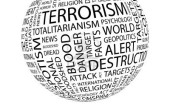Molly Minturn - My family is heartbroken to share that my father died in surgery on Monday, Feb. 10. It…
Our Commitment in Afghanistan – Robert Galbraith
Written by Diana Thebaud Nicholson // November 26, 2007 // Afghanistan, Canada, Middle East & Arab World, People Meta, Public Policy, Robert Galbraith // 1 Comment
November 26, 2007
We are delighted to confirm that Robert has returned safely from his two-month tour (in the military sense of the word) in Afghanistan and we are honoured that he has invited us, along with The Suburban, to publish this summary of his thoughts on the experience. We believe that these recommendations should be widely discussed and submitted to the attention of our political representatives. DTN
Our Commitment in Afghanistan
Should We stay – Or Should We Go?
By Robert J. Galbraith, in Kandahar
November 18th, 2007
Special to The Suburban
On Saturday November 17th, two Canadian soldiers were killed and three injured when the Light Armoured Vehicle they were driving was struck by a roadside bomb, just 40 kilometres west of Kandahar. An Afghan interpreter was also killed in the incident.
This brings the total to 73 Canadian soldiers and one diplomat killed since the Canadian Armed Forces began their mission here in 2002.
Many of you back home must be wondering if the lives of these soldiers are worth the sacrifice. To this journalist the answer is no, if our agenda is to only keep the troops here until 2009. If this is the case, then you might as well pull them out immediately and save the unnecessary loss of life, because a couple of more years here is not going to matter a damn to the security of Afghanistan and its rebuilding efforts.
What is honestly needed here is a ten to twenty-year commitment, and then they should stay for the long run, because that’s what it’s going to take to get this country on its feet. If this is possible, then I support the mission, as a long-term commitment. No half-baked two- year stint is going to do anything except let the people of Afghanistan down again, if our troops are pulled out at the whims of political correctness or the de-fragmentation of NATO.
Another huge part of the problem here is that you cannot have some NATO Forces ‘hiding out’ in the north and not having the guts to get into the fight, while others, like the Canadians, British, Dutch and Americans are carrying the bulk of the frontline fighting in the south and loosing the most men and women in the coalition force. Without this assurance, and a sharing of the most deadly assignments, this whole undertaking will eventually fall apart. It’s inevitable. It will take a team effort to beat or hold back the fanatics, and even then, because of their ‘get out of jail card’ that they hold in Pakistan, they will always be knocking on Afghanistan’s door. They will never relent.
Prime Minister Harper and the NATO leadership must work this out to a more balanced and equal participation, otherwise this whole commitment is a huge mistake and the Taliban will use this fractionalization for their own gain, as is happening now.
But the above is only a part of the problem. To the average Afghani, they see the foreign aid groups, the UN especially, as just being here to suck up the greater majority of the aid money into its very own bureaucracy and hugely inflated wages of its staff. And while a small percentage of the money destined for Afghanistan (perhaps 20% or less of each contributed dollar) reaches the people, there is a great resentment from the population against these bloated organizations. But I must make it very clear that some of the aid groups and NGO’s are making a great contribution towards a better life for many Afghanis, but this is the exception rather than the rule.
It is also a well documented fact that corruption is rampant within the Afghan ministries. Perhaps the worst case is the Ministry … responsible for the Afghan National Police (ANP). For Canada, or any other support country, to blindly submit their taxpayers’ money into this government and expect it to reach those who really need it, is completely irresponsible and incredibly naive. But [we] cannot … blame the Afghan ministries as much as we should blame the European and North American institutions who continue to dump our money into this bottomless abyss of non-accountability.
Canadians, and the Afghani people must be reassured that our contribution is not being skimmed-off and going into the bank accounts of those in power.
Canada is aware of this corruption, as it should be, and in the first week of October of this year, they began a policy to correct some of this abuse. In the south, the Canadian military is now paying the police officers their wages in cash, directly into their hands. This stopped the skimming by the ministry of the police officers’ $70-100 monthly wage; beforehand, by the time the pay got to the [individual] police they were left with $20 to zero dollars.
The Canadian Forces realized that this pilfering not only greatly affected the morale of the police members, but also meant there was less incentive for the police to provide important intelligence and to be less vigilant watching the backs of the Canadian soldiers who work in that region. Now, the local police have a much greater interest in the security of the Canadians, as they now get their pay from them, and all of it.
This strategy is a step in the right direction, but much more responsibility must be shown by all contributing countries to gain the confidence of the people of Afghanistan. This is all in the direction of the ‘winning the hearts and minds’ ideal that is so freely touted but rarely initiated to its full extent. But it is slowly kicking in.
The Afghan Border Police need better support as they are the front line and the first line of defense between Pakistan (a terrorist breeding ground) and Afghanistan. They must receive this assistance (which should include better arming, rebuilding checkpoints, and more specialized training). Right now they may be compared to the little Dutch boy who has to keep his finger in a leaky dike to hold back an ocean. They are dedicated, brave men who love their country. This I know, as I spent four days patrolling with them along the Afghan-Pakistan borders.
They have no access to adequate medical facilities should they be injured, and even worse, the coalition forces offer them no medical assistance and leave them to literally to bleed to death in the desert when they are maimed in ambushes along the border frontier. They don’t even have any medicine, or qualified medics to take care of the men. It really is a pathetic situation for such an important brick in the security of not only Afghanistan but the protection of the very porous border region. What nastiness gets through them, or sneaks past them, ends up supplying the roadside bombs and ambushes that kill our and other coalition soldiers.
What will happen if all the above is not addressed, is a Vietnam-style guerrilla war that will drag on for decades at a great cost of Afghan life and a complete loss of any gains that have been made up to this point. Also, and most importantly to you and me, Afghanistan will once again become the staging ground for any terrorist organization that wishes to set up here, and they most definitely will, in droves, using this country again as a base for training and attacking the West, and to subjugate the people of this nation once again.
Tarnak Farm was a former al Qaeda training camp located just outside Kandahar. Intelligence reports indicate that it was at this camp that Osama bin Laden and a few select henchmen conceived and laid the groundwork for the 9/11 attacks. This base was one of an estimated 120 training camps operating at this time.
So, dear readers, we can either commit to fighting the enemy here, or soon we will be fighting them in our own country, in our own cities and towns. Now is not the time to waver, or flip flop. Now is the time for courage and a renewed commitment to the brave men and women of our Canadian Armed Forces and their allies, who put their lives on the line to keep the jackals away from our very own backyards.
This story is dedicated to those who have fallen, and their loved ones, who must carry the weight of a great loss, for each living day of their lives.




One Comment on "Our Commitment in Afghanistan – Robert Galbraith"
(RCI) KANDAHAR: RELIEF WORK IN SOUTHERN AFGHANISTAN SAID FEASIBLE
UNICEF Canada President Nigel Fisher says that pursuing development work in southern Afghanistan is not only possible it is in fact being achieved. Mr. Fisher is making his first visit to that country since 2005. While acknowledging security concerns, he contradicts a recent report on the situation by the London-based Senlis Group, which claimed that the Taliban are regaining lost ground and that relief work should be carried out by the military which would accomplish it faster and more efficiently. Mr. Fisher says the real threat to relief operations isn’t the insurgency but common criminals. His mission is to evaluate projects for maternal and juvenile health and girls’ education. Mr. Fisher says that despite the security situation, it is “very much possible” to work in Kandahar, citing a plan next week to administer polio vaccines to 1.2 million children in the five southern provinces.